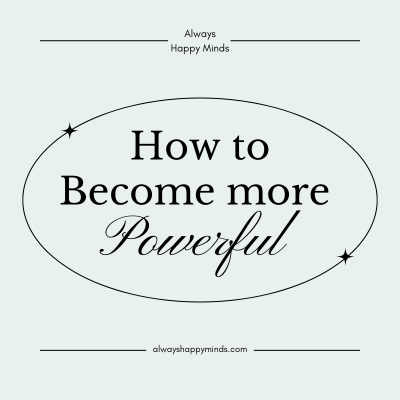Introduction
In today’s fast-paced world, stress has become an almost inevitable part of daily life. From work pressures to personal responsibilities, it can feel like there’s always something pulling at your time and energy. While some stress is natural and can even be beneficial, chronic stress can take a toll on your mental and physical health. Learning how to manage and overcome stress is essential for maintaining balance and well-being. In this post, we will explore practical tips and strategies to help you find calm in the midst of chaos.
Understanding Stress: A Necessary Response Gone Awry
Stress is the body’s natural response to challenges or threats. It triggers the “fight-or-flight” mechanism, which prepares us to react to danger by increasing our heart rate, releasing adrenaline, and sharpening our focus. This response was crucial for our ancestors when facing physical threats. However, in modern times, the stress response is often triggered by non-life-threatening situations like deadlines, arguments, or financial worries.
Chronic stress occurs when your body remains in this heightened state for prolonged periods. Over time, this can lead to mental exhaustion, anxiety, depression, and physical issues such as high blood pressure and weakened immune function. Recognizing the need to manage stress before it overwhelms you is key to preserving your health and happiness.
Tip 1: Identify Your Stressors
The first step to overcoming stress is understanding what triggers it. Take some time to reflect on the situations, environments, or people that tend to make you feel stressed. Keep a journal to document when stress occurs and how it makes you feel. This will help you notice patterns and identify the specific factors contributing to your stress.
Once you’ve identified your stressors, you can begin to address them more effectively. Ask yourself: Are these things within your control? If so, what steps can you take to minimize their impact? If not, how can you adjust your mindset to deal with them more calmly?
Tip 2: Practice Mindful Breathing
Mindful breathing is one of the simplest and most effective ways to reduce stress instantly. When you’re stressed, your breathing becomes shallow and rapid, which can exacerbate feelings of anxiety. By practicing deep, intentional breathing, you activate your body’s relaxation response and signal to your brain that it’s okay to calm down.
A popular technique is the 4-7-8 method:
- Inhale slowly through your nose for 4 seconds.
- Hold your breath for 7 seconds.
- Exhale gently through your mouth for 8 seconds.
Repeat this cycle a few times, focusing on the sensation of your breath entering and leaving your body. Mindful breathing can be done anywhere and at any time, making it a powerful tool for finding calm in moments of chaos.
Tip 3: Set Boundaries and Learn to Say “No”
One of the biggest sources of stress for many people is overcommitting themselves. Whether it’s taking on extra projects at work, agreeing to social events when you’re exhausted, or helping others when your own plate is full, saying “yes” too often can lead to burnout.
Learning to set boundaries and say “no” is crucial for managing stress. This doesn’t mean being selfish or unhelpful; it means recognizing your limits and prioritizing your well-being. If you’re unsure how to decline requests, practice saying something like, “I’d love to help, but I’m unable to take on more right now.”
Remember, protecting your time and energy is essential for staying balanced. By setting healthy boundaries, you reduce the risk of feeling overwhelmed by external demands.
Tip 4: Incorporate Physical Activity into Your Routine
Exercise is one of the best natural stress relievers. When you engage in physical activity, your body releases endorphins, also known as the “feel-good” hormones. These chemicals boost your mood and reduce the perception of pain and stress.
Regular exercise also helps reduce levels of the stress hormone cortisol, improving your ability to handle challenges. You don’t need to commit to intense workouts to see the benefits. Activities like walking, yoga, swimming, or even dancing can help you unwind and clear your mind.
The key is consistency. Find a form of exercise you enjoy, and try to incorporate it into your daily routine, even if it’s just for 20-30 minutes. Not only will you feel better physically, but you’ll also gain mental clarity and emotional balance.
Tip 5: Practice Gratitude
It can be easy to get caught up in the negatives when you’re feeling stressed, but practicing gratitude can shift your mindset and help you focus on the positives in your life. Studies have shown that gratitude is linked to lower stress levels and greater overall happiness.
One simple way to practice gratitude is to start a gratitude journal. Each day, write down three things you’re grateful for, no matter how big or small. Over time, this habit will train your brain to notice the good even in difficult situations, helping you stay more grounded when stress strikes.
Tip 6: Prioritize Self-Care
Self-care is often the first thing to fall by the wayside when life gets hectic, but it’s one of the most important ways to manage stress. Taking care of your physical, emotional, and mental needs ensures that you’re equipped to handle challenges without becoming overwhelmed.
Self-care doesn’t need to be elaborate. Simple acts such as getting enough sleep, eating nutritious meals, and spending time on activities you enjoy can go a long way in reducing stress. Make time for hobbies, connect with loved ones, and engage in activities that bring you joy and relaxation.
Tip 7: Disconnect from Technology
In today’s digital world, constant connectivity can be a major source of stress. Emails, social media, and news updates keep us in a state of constant stimulation, making it difficult to switch off and relax. Taking regular breaks from technology is essential for your mental well-being.
Try setting specific times during the day to disconnect from your devices. For example, avoid checking your phone during meals or within an hour before bedtime. Engage in offline activities like reading, journaling, or going for a walk to help clear your mind and reduce the mental clutter caused by constant digital input.
Tip 8: Use Stress-Relief Techniques like Meditation or Yoga
Meditation and yoga are two practices known for their profound effects on stress reduction. Both involve mindfulness and the intentional focus on the present moment, which can help break the cycle of stress-inducing thoughts.
Meditation, even just for 10 minutes a day, can improve your ability to handle stress. Focus on your breath, an object, or a mantra, allowing any stressful thoughts to pass without judgment. Over time, meditation teaches you to approach life’s challenges with greater calm and clarity.
Yoga combines physical movement with deep breathing, making it an excellent way to reduce stress and promote relaxation. It stretches and strengthens your body while calming your mind, making it a holistic approach to stress management.
Conclusion
Stress may be a part of life, but it doesn’t have to dominate your well-being. By understanding your stressors, practicing mindful breathing, setting boundaries, incorporating physical activity, and prioritizing self-care, you can find calm even in the chaos. Remember, managing stress is a journey, not a destination. The more you practice these strategies, the better equipped you’ll be to handle life’s challenges with grace and resilience.

